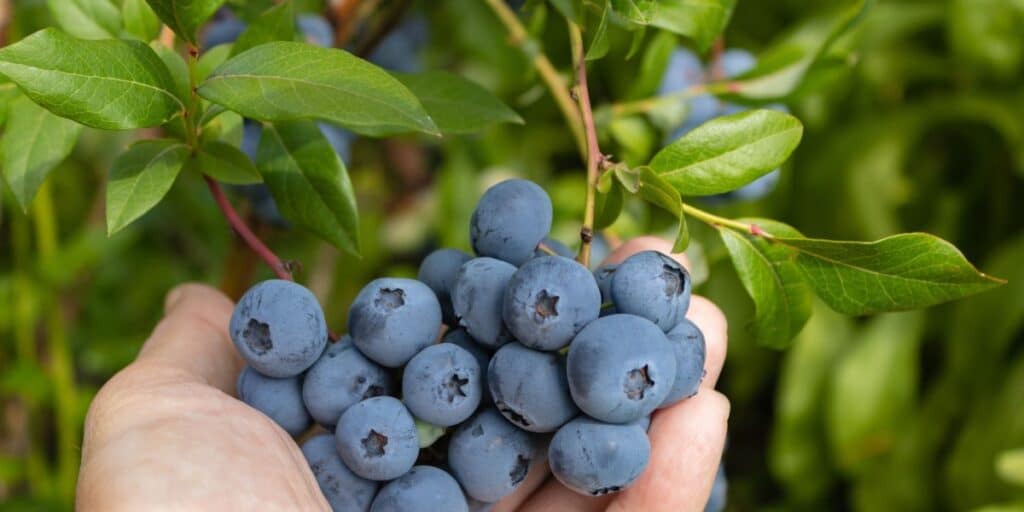When it comes to eating smart, your brain deserves just as much attention as your body. If you’re looking for the best foods for brain health, research is clear: certain fruits, vegetables, fats, and proteins can help preserve memory, improve focus, and even lower the risk of Alzheimer’s.
Among them, berries stand out as the ultimate powerhouse, packed with nutrients and compounds proven to protect and enhance brain function. In this article, we’ll highlight the health benefits of berries, plus other top foods for mental health that can help you feel sharper and more focused every day.
Berries for Brain Health: The Ultimate Powerhouse Fruit
Berries have long been celebrated as antioxidant-rich superfoods, but recent studies reveal they’re not just protective—they’re regenerative. They don’t just slow cognitive decline. They actively improve it.
Berries were once assumed to protect the brain like they do the body: by fighting off oxidative stress. They are known to be a high antioxidant food that combats free radicals. However, research finds that berries bolster memory and brain function, not just protect it.
Berries are capable of modulating signaling pathways involved in inflammation, cell survival, neurotransmission and enhancing neuroplasticity.
What Makes Berries So Beneficial for the Brain?
When it comes to berries for brain health, their power lies in their phytochemical content and their ability to influence brain chemistry at the cellular level. Here’s what makes them a top-tier food for mental health:
- Anthocyanins – These are the flavonoids responsible for berries’ deep red, purple, and blues. This compound that gives berries their rich color offers protection of neurons, glial cells and hippocampal nerve cells against the damage of Aβ-proteins, glutamate, and lipopolysaccharides. It also protects brain structure and memory pathways.
- Caffeic Acid – A phytochemical found in many berries. Research shows that phytochemicals in berry fruits (e.g., anthocyanin and caffeic acid) have a beneficial role in brain aging and neurodegenerative disorders because of their anti-oxidative, anti-inflammatory, anti-viral and anti-proliferative properties. It reduces inflammation and supports aging brains.
- Flavonoids – More than just antioxidants. Research finds that flavonoids don’t just protect but also enhance memory and cognitive functioning. It improves learning, memory, and brain plasticity.
- Glutathione – A powerful antioxidant enhanced by blueberry consumption. Amyloid beta protein (AB) which promotes oxidative stress, aging and neurodegeneration, is decreased by using blueberry extract. Further, it upregulates glutathione, a key factor in oxidative depletion. It also reduces age-related brain stress and cellular damage.
Which Berries Are Best?
Blueberries have been shown to be the most effective in promoting brain health. It’s mostly due to the higher levels of anthocyanins than the other berries.
That said, strawberries, raspberries, blackberries, and elderberries also contain valuable flavonoids that improve brain function.
What do all types of berries have in common when it comes to preventing memory loss? Flavinoids in particular anthocyanins.
How Often Should You Eat Berries?
It is recommended to eat berries every day, to keep a steady flow of blood to critical brain structures that help with cognitive and memory function. In addition, the compounds in berries will regulate the activity that decreases brain functioning.
Daily consumption is ideal. For the most brain benefit, enjoy them in the morning or as part of a balanced snack throughout the day. Sprinkle them into chia seed puddings, yogurt, or cereal to engage absorption and maximum benefits.
Leafy Greens: Protect Memory with Every Bite
Leafy greens like spinach, kale, and collard greens are nutritional powerhouses that support cognitive health.
- Folate – Crucial for neurotransmitter function and mood regulation
- Vitamin K – Helps prevent cognitive decline by protecting neurons
- Lutein & Beta-carotene – Fight oxidative damage in the brain
Aim for at least one serving per day for long-term brain protection.
Fatty Fish: Omega-3s for Mental Clarity
Fatty fish like salmon, sardines, and mackerel are rich in omega-3 fatty acids, which are key building blocks for the brain.
- DHA – Supports brain cell membranes and communication
- EPA – Reduces inflammation and promotes stable mood
Regular intake of omega-3s has been shown to improve memory and reduce symptoms of depression and anxiety.
Nuts and Seeds: Brain Fuel on the Go
Snackable and nutrient-dense, nuts and seeds are excellent foods for brain health.
- Vitamin E – Antioxidant that slows cognitive decline
- Magnesium & Zinc – Support neurotransmitter balance
- ALA (plant-based omega-3) – Enhances blood flow to the brain
Pair walnuts or chia seeds with berries for a potent memory-supporting meal or snack. Better yet, Dr. Hafeez says throw them in your yogurt or cereal to keep things exciting.
Citrus Fruits: Brighten Brain Function
Vegetables like broccoli, cauliflower, and Brussels sprouts contain sulforaphane, which activates detoxification enzymes in the brain.
- Sulforaphane – Helps repair damaged neurons and supports new brain cell growth
- Vitamin C and Folate – Help reduce inflammation and support cognitive longevity
Fruits to Be Cautious With
While most fruits are healthy, some may pose risks if overconsumed.
Some fruits within the Annonaceae family, like Soursop, can contain a compound called annonacin, which has been linked to neurotoxicity and potentially atypical Parkinsonism. Chronic exposure to the acetogenins, including annonacin, found in these fruits can potentially worsen neural damage. However, moderate consumption is generally recommended, and the actual health effects can depend on various factors.
Eat tropical fruits like soursop in moderation and focus on low-risk, high-reward options, like berries.
Final Thoughts: Let Berries Be the Brain Food You Reach For First
When looking for the best food for brain health, berries deliver unmatched cognitive benefits. From reducing inflammation to enhancing neuroplasticity and preserving memory, their unique combination of flavonoids, antioxidants, and brain-supportive vitamins makes them a daily essential.
Pair them with other nutrient-rich foods like leafy greens, fish, citrus, and nuts for a balanced, brain-boosting diet.
Eating well isn’t just about your body – it’s about your future mind.

